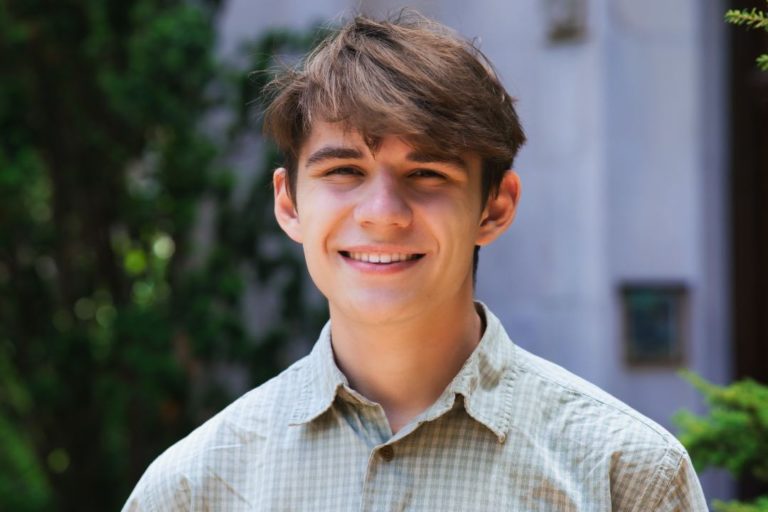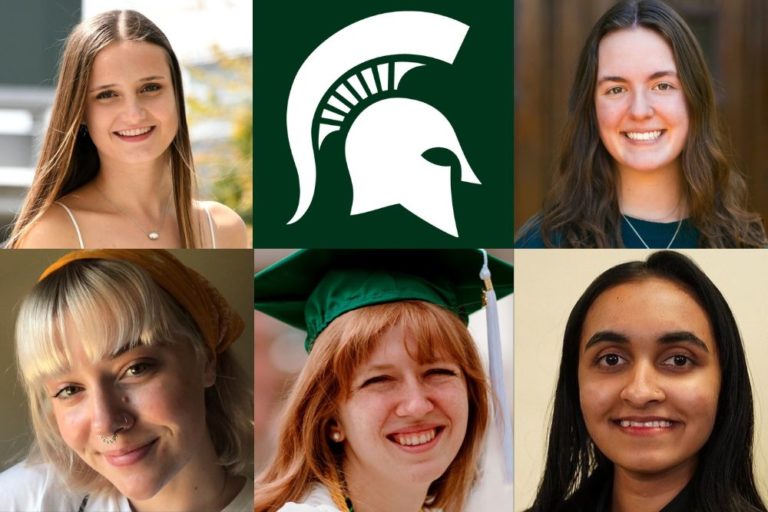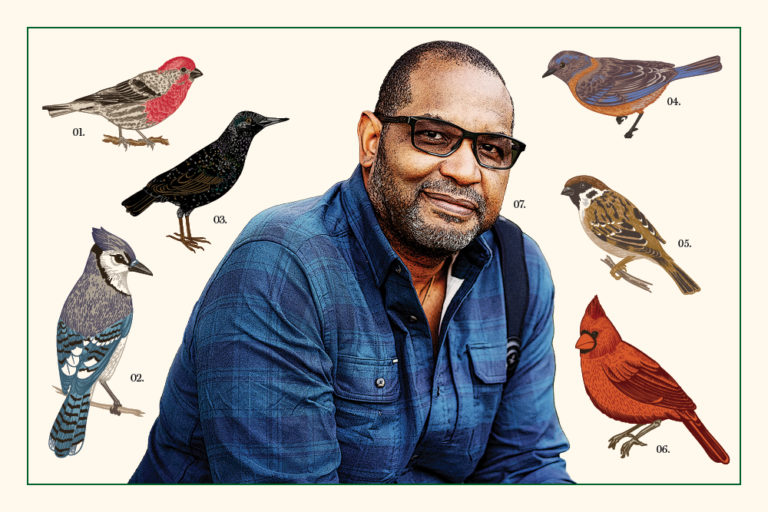Inspired by events from this past year surrounding the Black Lives Matter and Black Civil Rights movements, College of Arts & Letters alumnus Darrell Williams founded a nonprofit organization, the Lawson Porter Scholarship Foundation, to help Black students reach their higher education goals while at the same time emphasizing the importance of Afrocentric history.
A first-generation four-year college student, Williams graduated from Michigan State University in 2018 with a bachelor’s degree in Professional Writing and is now pursuing dual master’s degrees in Data Science and Public Health from the University of Michigan, where he also works as a Digital Accessibility Analyst.
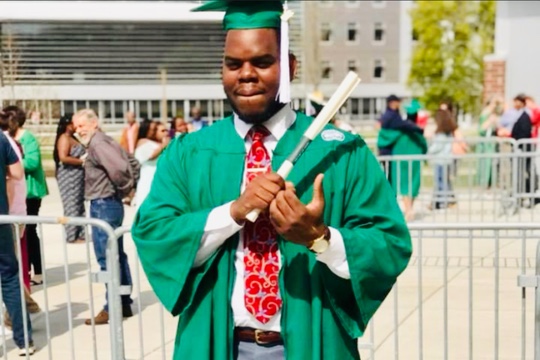
The idea for the Lawson Porter Scholarship Foundation began last March as news unfolded in response to the death of Breonna Taylor and then later the death of George Floyd and the Black Lives Matter demonstrations that ensued.
“There was a lot of civil unrest, and I was wondering where I could best help,” Williams said. “I do know that education and access to quality education are huge social determinants of health, and I work in higher education and am passionate about higher ed, so I thought this is the best place for me to begin.”
There was a lot of civil unrest, and I was wondering where I could best help. I do know that education and access to quality education are huge social determinants of health, and I work in higher education and am passionate about higher ed, so I thought this is the best place for me to begin.
Originally, Williams and a couple of his cousins, who also are recent college graduates, thought they would raise $1,000 each semester to give to a student to help pay for college. But as Williams researched how to legally do this, the idea evolved into a nonprofit that aims to foster equitable pathways for Black students to a college education, regardless of how they perform in Science, Technology, Engineering, and Mathematics (STEM) courses, and where applicants focus on Afrocentric history.
“Almost all K-12 curriculum are centered around Euro-centric histories or are disproportionately STEM heavy. Perhaps a student didn’t come from a background with substantial economic and academic resources; success in STEM education is heavily based on resourcing,” Williams said. “I can recall being in a K-12 institution and just feeling unintelligent and constantly underwater not realizing that the root cause of those feelings was an under-resourced Detroit Public School system. I thought I was the problem, but it really reflected on how poor our education system was and how there simply wasn’t enough infrastructure or support.”
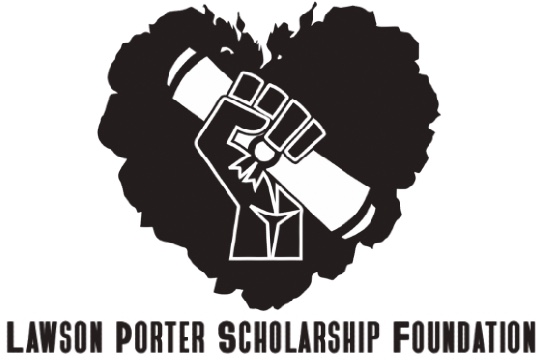
The Lawson Porter Scholarship Foundation was created to support Black high school seniors and undergraduate students from across the United States, including U.S. territories, who are pursuing any field of study and demonstrate financial need and have at least a 2.0 cumulative GPA.
Recognizing that many scholarships are based on GPA with about 70 percent of merit-based scholarships going to non-minorities, Williams didn’t want to lower the bar, but rather to increase access. He set the GPA requirement at 2.0 so that everyone would feel capable of applying.
There are very bright students who may not have performed well on the ACT or SAT or who didn’t get that high GPA but still have all the potential in the world to succeed in higher education.
“You have students working full-time jobs after school, not having good at-home environments, so dealing with a history exam is the least of their worries,” Williams said. “There are very bright students who may not have performed well on the ACT or SAT or who didn’t get that high GPA but still have all the potential in the world to succeed in higher education.”
The Lawson Porter Scholarship Foundation also seeks to shine a spotlight on Afrocentric history. The tagline for the scholarship is “Unearthing Our Past, Contextualizing Our Present, Preparing for Our Future.” Scholarship applicants are asked to create a piece that captures some form of Afrocentric history, such as writing a paper, short story, or poem; creating a video or a piece of art; or organizing a community engagement project. The main point is to explore that history that isn’t taught in K-12 schools and, in doing so, to illuminate the rich history of the global pan-African diaspora, provide context for the current socioeconomic, educational, and criminal disparities that exist in the Black community and, as a result, help prepare Black youth for the futures they envision for themselves.
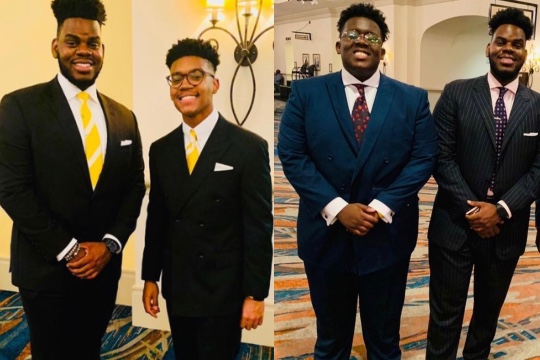
“We don’t want to take away from STEM,” Williams said, “but rather not focus so heavily on it that it creates a barrier to higher education.”
The Lawson Porter Scholarship Foundation will begin accepting applications this spring and plans to award its first scholarships in fall 2021.
To get the word out about the scholarship, there will be a social media campaign, and the nonprofit plans to talk to high schools and colleges remotely. The organization also is looking to partner with other nonprofits to help amplify their message and to see how they can work together to benefit the Black community and their respective organizations.
Digital Accessibility is what set me on the path of addressing social needs, it wasn’t until later in my education that I found out Digital Accessibility helps address barriers to care, which is a key issue in public health.
From his time at MSU and throughout his liberal arts education, Williams found the skills that he felt were most valuable to his career, which were the ability to communicate effectively, to listen, and to be a strong writer. Those skills he said came from his MSU education and helped him obtain the job he has today. The idea for the nonprofit and serving others through a higher education lens came from volunteer and community engagement work during his time at MSU.
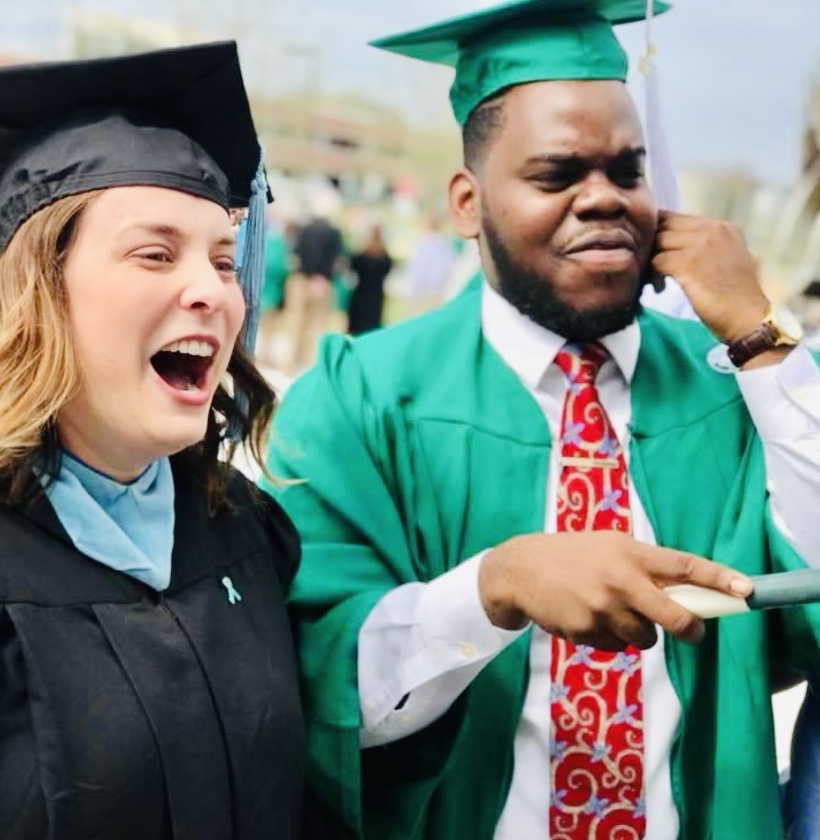
“Kate Sonka (Assistant Director of Inclusion and Academic Technology for MSU’s College of Arts & Letters) recommended a book to me, called What the Eyes Don’t See by Dr. Mona Hanna-Attisha, another MSU alum. After I read her book, I decided to go to graduate school for Data Science and Public Health. That path kind of outlined the idea for a nonprofit,” Williams said. “Digital Accessibility is what set me on the path of addressing social needs, it wasn’t until later in my education that I found out Digital Accessibility helps address barriers to care, which is a key issue in public health. I was already a volunteer/advocate kind of person, but this helped me put together my tech background, my writing skills, and my passion for people all into one place.”
